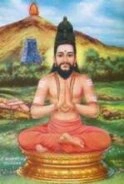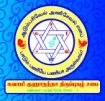

திரு அருணகிரிநாதர் அருளிய
திருப்புகழ்
Sri AruNagirinAthar's
Thiruppugazh

 |  திரு அருணகிரிநாதர் அருளிய Sri AruNagirinAthar's |  |
|---|
| (இந்த வலைத்தளத்தைப் பயன்படுத்துவதற்கு முன்பு எனது முக்கியக் குறிப்பைப் படியுங்கள் - நன்றி). (Please read my important note before using this website - Thank You). |
| திருப்புகழ் 506 நாலு சதுரத்த பஞ்ச (சிதம்பரம்) Thiruppugazh 506 nAlusadhuraththapancha (chidhambaram) |
 |  | தமிழிலும் ஆங்கிலத்திலும் பொருள் எழுதியது ஸ்ரீ கோபால சுந்தரம் Meanings in Tamil and English by Sri Gopala Sundaram | English PDF அமைப்பு in PDF | ஆலய வரிசை அகரவரிசை எண்வரிசை தேடல் venue list alphabetical numerical search |
|
தானதன தத்த தந்தன தானதன தத்த தந்தன தானதன தத்த தந்தன ...... தந்ததான ......... பாடல் ......... நாலுசது ரத்த பஞ்சறை மூலகம லத்தி லங்கியை நாடியின டத்தி மந்திர ...... பந்தியாலே நாரண புரத்தி லிந்துவி னூடுற இணக்கி நன்சுடர் நாறிசை நடத்தி மண்டல ...... சந்தியாறிற் கோலமு முதிப்ப கண்டுள நாலினை மறித்தி தம்பெறு கோவென முழக்கு சங்கொலி ...... விந்துநாதங் கூடிய முகப்பி லிந்திர வானவமு தத்தை யுண்டொரு கோடிநட னப்ப தஞ்சபை ...... யென்றுசேர்வேன் ஆலமல ருற்ற சம்பவி வேரிலி குலக்கொ ழுந்திலி ஆரணர் தலைக்க லங்கொளி ...... செம்பொன்வாசி ஆணவ மயக்க முங்கலி காமிய மகற்றி யென்றனை ஆளுமை பரத்தி சுந்தரி ...... தந்தசேயே வேலதை யெடுத்து மிந்திரர் மால்விதி பிழைக்க வஞ்சகர் வீடெரி கொளுத்தி யெண்கட ...... லுண்டவேலா வேதசது ரத்தர் தென்புலி யூருறை யொருத்தி பங்கினர் வீறுநட னர்க்கி சைந்தருள் ...... தம்பிரானே. ......... சொல் விளக்கம் ......... நாலு சதுரத்த பஞ்ச அறை மூல கமலத்தில் அங்கியை ... நாலு சதுரப் பிரம பீடமாகிய, ஐந்தாம் வீடாகிய சுவாதிஷ்டானத்தில்* செல்லும்படி, மூலாதார கமலத்துள்ள அக்கினியை நாடியில் நடத்தி மந்திர பந்தியாலே ... பிராணாயாம மந்திர ஒழுங்கினால் சுழு முனை** நாடி மார்க்கத்தில் செலுத்தி, நாரண புரத்தில் இந்துவின் ஊடுற இணக்கி நன் சுடர் நாற ... விஷ்ணு வீடாகிய மணி பூரகத்தில் உள்ள சந்திரகாரமாகிய பீடத்தில் பொருந்திச் சேர்ந்து நல்ல சுடர் தோன்றும்படியாக, இசை நடத்தி மண்டல சந்தி ஆறில் ... (அனாகதம் முதலிய மற்ற நிலைகளிலும்) இணங்கி நடத்தி அக்கினி முதலிய மும்மண்டலங்களிலும் சந்தித்துள்ள ஆறு ஆதாரங்களிலும் பொருந்திய கோலமும் உதிப்ப கண்டு ... பல திருக் கோலங்களையும் பார்த்து, உள நாலினை மறித்து ... சரீர நிலைக்கு ஆதாரமாக உள்ள நாலு அங்குலப் பிராண கலையை (கும்பக வழியில்)** சிறிது சிறிதாகக் கழிந்து போகாதபடித் தடுத்து, இதம் பெறு கோ என முழக்கு சங்கு ஒலி ... இனிமையாகிய கோ என்று முழங்கும் சங்கின் ஒலியைக் கேட்டு, விந்து நாதம் கூடிய முகப்பில் இந்திர வான அமுதத்தை உண்டு ... விந்து சம்பந்த (சிவ - சக்தி) நாத ஒலி கூடி இருக்கும் இடத்தில் நின்று இந்திர போகமாகிய தேவாமிர்தத்தைப் பருகி, ஒரு கோடி நடனப் பத அம் சபை என்று சேர்வேன் ... கணக்கற்ற நடனம் புரியும் குஞ்சிதபாதனுடைய (நடராஜனுடைய) அழகிய பொற் சபையை எக்காலத்தில் அடையப் பெறுவேன்? ஆலம் மலருற்ற சம்பவி வேரிலி குலக் கொழுந்திலி ... நீரில் உண்டாகும் தாமரை மலரில் வீற்றிருக்கும் பார்வதி, ஆதியும் குலமும் அந்தமும் இல்லாதவள், ஆரணர் தலைக் கலம் கொளி செம் பொன் வாசி ... வேதம் வல்ல நான்முகனுடைய பிரம கபாலத்தை (பாத்திரமாகக்) கொண்டவள், செம்பொன்போன்ற உயர் குணம் உடையவள், ஆணவ மயக்கமும் க(ல்)லி காமியம் அகற்றி என்றனை ஆள் உமை ... எனது ஆணவத்தையும், மயக்கத்தையும் தோண்டி வேரறுத்து, ஆசைகளை ஒழித்து, என்னை ஆண்டருளிய உமை, பரத்தி சுந்தரி தந்த சேயே ... பராசக்தி, அழகி ஆகிய பார்வதி பெற்ற குழந்தையே, வேல் அதை எடுத்தும் இந்திரர் மால் விதி பிழைக்க ... வேல் ஏந்தி இந்திரர்களும், திருமாலும், பிரமனும் பிழைக்கும் வண்ணம் வஞ்சகர் வீடு எரி கொளுத்தி எண் கடல் உண்ட வேலா ... வஞ்சகராகிய அசுரர்களின் வீடுகளை எரி மூட்டி, மதிக்கத் தக்க கடல்களையும் வற்றச் செய்த வேலனே, வேத சதுரத்தர் தென் புலியூர் உறை ஒருத்தி பங்கினர் வீறு நடனர்க்கு ... நான்கு வேதங்களையும் உடைய பிரமனுக்கும், சிதம்பரத்தில் வாழ்கின்ற ஒப்பற்ற பார்வதி தேவியைப் பாங்கிலே வைத்து மேம்பட்டு விளங்கும் நடன மூர்த்தியாகிய சிவ பெருமானுக்கும் இசைந்து அருள் தம்பிரானே. ... மனம் இசைந்து உபதேசம் செய்தருளிய பெருமாளே. |
* ஆதாரங்களின் பெயர்களும், உடலில் இருக்கும் இடம், உரிய ஐம்பூதங்கள், அனுட்டிக்கும்போது மலர் வடிவங்களின் அமைப்பு, அக்ஷரக் குறிப்பு ஆகியவை கீழே தரப்பட்டுள்ளன. மேலும் இந்த ஆதாரங்களுக்கு உரிய தலங்கள், கடவுளர்கள் பெயர்களும் கொடுக்கப்பட்டுள்ளன. | ||||||
| ஆதாரம் மூலாதாரம் சுவாதிஷ்டானம் மணிபூரகம் அநாகதம் விசுத்தி ஆக்ஞா பிந்து சக்கரம் (துவாதசாந்தம், ஸஹஸ்ராரம், பிரமரந்திரம்) | இடம் குதம் கொப்பூழ் மேல்வயிறு இருதயம் கண்டம் புருவத்தின் நடு கபாலத்தின் மேலே | பூதம் மண் அக்கினி நீர் காற்று ஆகாயம் மனம் | வடிவம் 4 இதழ் கமலம் முக்கோணம் 6 இதழ் கமலம் லிங்கபீடம் நாற் சதுரம் 10 இதழ் கமலம் பெட்டிப்பாம்பு நடு வட்டம் 12 இதழ் கமலம் முக்கோணம் கமல வட்டம் 16 இதழ் கமலம் ஆறு கோணம் நடு வட்டம் 3 இதழ் கமலம் 1008 இதழ் கமலம் | அக்ஷரம் ஓம் ந(கரம்) ம(கரம்) சி(கரம்) வ(கரம்) ய(கரம்) | தலம் திருவாரூர் திருவானைக்கா திரு(வ) அண்ணாமலை சிதம்பரம் திருக்காளத்தி காசி (வாரணாசி) திருக்கயிலை | கடவுள் விநாயகர் பிரமன் திருமால் ருத்திரன் மகேசுரன் சதாசிவன் சிவ . சக்தி ஐக்கியம் |
** இங்கு சிவயோக முறைகள் விளக்கப்பட்டுள்ளன. அதன் சுருக்கம் வருமாறு: நாம் உள்ளுக்கு இழுக்கும் காற்றுக்குப் 'பூரகம்' என்றும், வெளிவிடும் காற்றுக்கு 'ரேசகம்' என்றும் பெயர். உள்ளே நிறுத்திவைக்கப்படும் காற்றுக்கு 'கும்பகம்' என்று பெயர். உட் கொள்ளும் பிராணவாயு உடலில் குறிப்பிட்ட 'ஆதாரங்கள்' (நிலைகள், சக்கரங்கள்) மூலமாகப் படிப்படியாகப் பரவி, மேல் நோக்கிச் சென்று, தலையில் 'பிரம கபால'த்தில் உள்ள 'ஸஹஸ்ராரம்' (பிந்து சக்கரம்) என்ற சக்கரத்துக்குச் செல்லும். இந்த ஐக்கியம் ஏற்படும்போது, அமுத சக்தி பிறந்து, ஆறு ஆதாரங்களுக்கும் ஊட்டப்பட்டு, மீண்டும் அதே வழியில் 'மூலாதார'த்தை வந்து அடையும். இந்த ஆதாரங்களை ஒழுங்கு படுத்தும் வகையில் மூன்று 'மண்டல'ங்களும் (அக்கினி, ஆதித்த, சந்திர மண்டலங்கள்), பத்து 'நாடி'களும் (இடைகலை, பிங்கலை, சுழுமுனை முதலியன) உள்ளன. 'இடைகலை' பத்து நாடிகளுள் ஒன்று. இடது நாசியால் விடும் சுவாசம். 'பிங்கலை' பத்து நாடிகளுள் ஒன்று. வலது நாசி வழியால் விடும் சுவாசம். 'சுழு முனை' இடைகலைக்கும் பிங்கலைக்கும் இடையில் உள்ளது. 'சுழு முனை' ஆதாரம் ஆறிலும் ஊடுருவி நிற்பது. 'இடைகலை'யும், 'பிங்கலை'யும் ஒன்றுக்கொன்று பின்னி நிற்பன. சுவாச நடப்பை 'ப்ராணாயாமம்' என்ற யோக வன்மையால் கட்டுப்படுத்தினால் மன அமைதி ஏற்படும். |
| 'wikisource' reference links for this song இப்பாடலுக்கான 'விக்கிமூலம்' இணையப் பக்கங்கள் pg 2.517 pg 2.518 pg 2.519 pg 2.520 pg 2.521 pg 2.522 WIKI_urai Song number: 647 goto wiki alpha list (Please note: Kaumaram.com is NOT responsible for accuracy and contents of external links) |
| ஸ்ரீ மஹா பெரியவா திருப்புகழ் சபை & சுவாமி குஹாநந்தா திருப்புகழ் சபை (சேலம்) Sri Maha Periyava Thirupugazh Sabha & Swamy Gughanandha Thirupugazh Sabha (Salem) |
 |  |  |
 | இப்பாடலின் பொருள் meanings in Tamil |  |
(Please note: Kaumaram.com is NOT responsible for accuracy and contents of external links) top |
|
Song 506 - nAlusadhu raththa pancha (chidhambaram) nAluchathu raththa panjaRai mUlakama laththi langiyai nAdiyina daththi manthira ...... panthiyAlE nAraNa puraththi linthuvi nUduRa iNakki nansudar nARisai nadaththi maNdala ...... santhiyARiR kOlamu muthippa kaNduLa nAlinai maRiththi thampeRu kOvena muzhakku sangoli ...... vinthunAtham kUdiya mukappi linthira vAnava muthaththai yuNdoru kOdinada nappa thanjcapai ...... yenRusErvEn Alamala rutRa sampavi vErili kulakko zhunthili AraNar thalaikka langkoLi ...... semponvAsi ANava mayakka mungkali kAmiya makatRi yenRanai ALumai paraththi sunthari ...... thanthasEyE vElathai yeduththu minthirar mAlvithi pizhaikka vanjakar veederi koLuththi yeNkada ...... luNdavElA vEthasathu raththar thenpuli yUruRai yoruththi panginar veeRunada narkki saintharuL ...... thambirAnE. ......... Meaning ......... nAlu chathuraththa panja aRai mUla kamalaththil angiyai: Directing the fire in the lotus at the MUlAdhAra Centre towards the four-square seat of BrahmA, the fifth house, called SwAdhishtAnam* nAdiyil nadaththi manthira panthiyAlE: through the susumna** nerve by way of regulated breathing (PrANAyAmam) and meditation, nAraNa puraththil inthuvin UduRa iNakki nan sudar nARa: creating a great effulgence in the lunar zone centred at MaNipUragam, the centre which is VishNu's abode, isai nadaththi maNdala santhi ARil: conducting the fire in a coordinated way along the three zones (Agni, the Sun and the Moon) and the six centres (anAgatham and others), kOlamum uthippa kaNdu: witnessing several divine images in all those places, uLa nAlinai maRiththu: conserving (in a process known as "kumbakam")** the four inches of PrANic air (oxygen), which is vital for preserving the body, by not letting it seep out gradually, itham peRu kO ena muzhakku sangu oli: hearing the melodious and high-pitch tone of the conch shell, vinthu nAtham kUdiya mukappil inthira vAna amuthaththai uNdu: halting at the junction of the Siva-Sakthi union where divine music is heard and imbibing the celestial nectar that is IndrA's bliss, oru kOdi nadanap patha am sapai enRu sErvEn: when shall I reach the great golden stage of Lord NadarAja, with His raised left foot, dancing a myriad dances? Alam malarutRa sampavi vErili kulak kozhunthili: She is PArvathi seated on the lotus blossoming from water; She has no beginning, lineage or end; AraNar thalaik kalam koLi sem pon vAsi: She holds (as a vessel) in Her hand the skull of BrahmA, the four-faced Lord, an expert in VEdAs; Her demeanour is one of reddish gold; ANava mayakkamum ka(l)li kAmiyam akatRi enaRanai AL umai: She is Goddess UmA who has uprooted my arrogance and delusion, removed all my desires and taken complete control of me; paraththi sunthari thantha sEyE: She is the Supreme Power (ParAsakthi); She is PArvathi the beautiful; and You are Her child! vEl athai eduththum inthirar mAl vithi pizhaikka: To rescue all IndrAs, VishNu and BrahmA, You took hold of Your spear vanjakar veedu eri koLuththi eN kadal uNda vElA: and wielded it to burn down the houses of the treacherous demons and to dry up the water in the important seas, Oh Lord! vEtha sathuraththar then puliyUr uRai oruththi panginar veeRu nadanarkku: To BrahmA, who is an authority on the four VEdAs, and to Lord SivA, who is the Cosmic Dancer in Chidhambaram, having concorporated in His body the unique Goddess, PArvathi, isainthu aruL thambirAnE.: You willingly preached, Oh Great One! |
* The names of the chakrA centres, the deities, the elements, the zones of the body where they are located, the shape of the chakrAs, the description of the flowers in the chakrAs, the letters of the ManthrA governing them and the temple-towns representing them are given in the following chart: | ||||||
| ChakrA mUlAthAram swAthishtAnam maNipUragam anAgatham visudhdhi AgnyA Bindu chakkaram (DhwAdhasAntham, SahasrAram, Brahma-ranthiram) | Body Zone Genitals Belly-button Upper belly Heart Throat Between the eyebrows Over the skull | Element Earth Fire Water Air Sky Mind | Shape 4-petal lotus Triangle 6-petal lotus Lingam Square 10-petal lotus cobra in box central circle 12-petal lotus Triangle lotus circle 16-petal lotus Hexagon central circle 3-petal lotus 1008-petal lotus | Letter Om na ma si va ya | Temple ThiruvArUr ThiruvAnaikkA Thiru aNNAmalai Chidhambaram ThirukkALaththi VaranAsi (kAsi) Mt. KailAsh | Deity VinAyagar BrahmA Vishnu RUdhran MahEswaran SathAsivan Siva-Sakthi Union |
** In this song, several Siva-yOgA principles are explained: The inhaled air is known as 'pUragam' and the exhaled air is 'rechagam'. The retained air is 'kumbagam'. The oxygen that enters the body climbs up step by step through several centres, known as 'chakrAs' and ultimately reaches 'sahasrAram' or 'bindhuchakram' on the top of the skull. At that point of union, nectar flows from that chakrA and seeps through and soaks the six centres of the body and returns to the basic chakrA, 'mUlAthAram'. Three zones (namely, the sun zone, the moon zone and the fire zone) and ten nerves ('nAdis') govern the six centres; the principal nerves are 'susumna', 'idaikala' and 'pingala'. idakala: one of the ten 'nAdis' (nerves), when inhalation takes place through the left nostril; pingala: one of the ten 'nAdis' (nerves), when inhalation takes place through the right nostril; susumna: one of the ten 'nAdis' (nerves), situated between the above two 'nadis', and running through the spinal chord covering all the six centres of 'kundalini'. ('idakala' and 'pingala' are entwined around 'susumna'). If breathing is controlled through a yOgA called 'praNAyAmA', the mind becomes tranquil. |
| தமிழில் PDF அமைப்பு ஆலய வரிசை அகரவரிசை எண்வரிசை |
| ... https://kaumaram.com ... The website for Lord Murugan and His Devotees முகப்பு அட்டவணை மேலே home contents top |
Kaumaram.com is a non-commercial website. This website is a dedication of Love for Lord Murugan. PLEASE do not ask me for songs about other deities or for BOOKS - This is NOT a bookshop - sorry. Please take note that Kaumaram.com DOES NOT solicit any funding, DIRECTLY or INDIRECTLY. © Copyright Kaumaram dot com - 2001-2040 COMMERCIAL USE OF MATERIAL IN THIS WEBSITE IS NOT PERMITTED. Please contact me (the webmaster), if you wish to place a link in your website. email: kaumaram@gmail.com Disclaimer: Although necessary efforts have been taken by me (the webmaster), to keep the items in https://kaumaram.com safe from viruses etc., I am NOT responsible for any damage caused by use of and/or downloading of any item from this website or from linked external sites. Please use updated ANTI-VIRUS program to rescan all downloaded items from the internet for maximum safety and security. மேலே top |